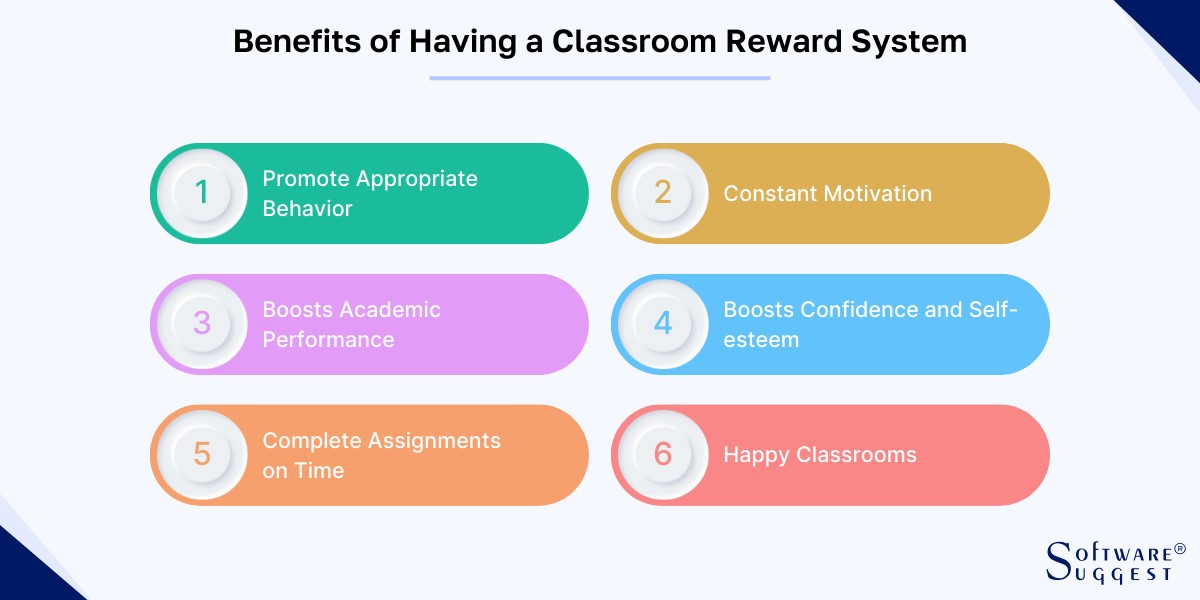
One very contentious aspect of teaching is the use of incentives and awards in the classroom. Extrinsic material incentives are seen by many educators as suitable and successful methods of managing conduct. When choosing incentives, bear in mind that certain student groups react better to rewards than others, and that many instructors discover that every school year presents new challenges. If you want to proceed with an incentive system, carefully review the following conditions to ascertain the most effective way to encourage positive behavior in your students.
Why Do Students Need Behaviour Incentives?
Many of the students want encouragement to persevere and achieve in subjects or areas of the school that they may not have always excelled in. As seasoned instructors with a Bachelor of Education in Special Educational Needs are aware, self-motivated people do exist, but they are typically the exception. So how can you get in touch with everyone? Using rewards consistently can improve motivation and morale.

They are helpful not just for the demotivated but also for inspiring the intrinsically motivated to go above and beyond. Learners enjoy being acknowledged and rewarded, and when you do so, they are more inclined to repeat the behavior. Everyone enjoys hearing that their work is valued.
Do you follow us on Social Media? We regularly share upgraded educational content, tips, feedback, and more. Check us out by clicking the profiles here - Facebook / Twitter / LinkedIn / Pinterest / Instagram / YouTube
4 Ways To Use Incentive Programs To Foster Positive Behaviour
If you want more knowledge on how to set up incentive programs for your classroom, here are a few ways to do so:
1. Limit Incentives At The Beginning Of The School Year
The idea of rewards in the classroom is an important concept that you need to consider at the beginning of every school year. If you start providing rewards from the very start, your students will start building expectations and will work only towards them rather than academic achievements. Therefore, limit your prizes at the beginning of the school year to make the entire system run more smoothly.
You need to remember that it is not your job to reward your students for doing what is already expected of them. Instead, you should instill a concept that hard work and effort pay off. Your students need to understand that they need to work hard to get rewarded and not complete the bare minimum.
2. Practice Careful Timing
When choosing how to include incentives in their practice, teachers should consider the entire year, not just the beginning. Restricting the usage of incentives to periods of the year when kids are not having a lot of difficulty may be helpful. Conversely, a lot of kids struggle to concentrate and work well in class over the holidays, before summer vacation, and occasionally even on the first day of a new week.
Look for students who, despite other distractions, are making an effort to improve, and, if necessary, use rewards to raise morale. Demonstrate to your students that you understand how conduct fluctuates over the year and that you value them especially.
3. Avoid Overemphasis
Overemphasizing incentives is detrimental to the purpose of incentivization. Although healthy competition in moderation is normal, teachers should never instigate rivalry among their pupils. Since every student is unique, teachers ought to have varying expectations for appropriate behavior from one another.
Similarly, avoid making incentives a major part of your routines since you don't want to teach children to behave better only so they may get rewards. If you see that your kids are starting to perform for the wrong reasons, suspend the system and regroup.
4. Say No To Material Rewards
When it comes to incentives, the best teaching practices are those that completely eschew using material rewards. It is not expected of teachers to spend their own time or money filling reward boxes.
Moreover, it is extremely troublesome to send some kids home with enjoyable gifts while leaving others without. Avoid getting into any issues with families or the government by avoiding monetary rewards completely.
Rewards And Incentives to Try For Your Classroom
A drawing or raffle-style exercise that partially randomizes the rewards is one common method of class incentives. You may award a ticket that enters a student's name into a drawing each time you believe they have earned it. Draw to choose which student will get the award at the end of the day or week.
The remaining names can be removed to begin over, or you can keep them in the box. This approach will save you time and effort and does not generate any concerns of bias. To instill a feeling of ownership in your pupils, think about asking them to assist you in overseeing the raffle procedure by drawing the name, tallying tickets, etc.
Some other reward schemes that you can try are as follows:
Motivate Students The Right Way
Consider your class while deciding on the award period that will mean the most to them. Class assignments are a terrific way to reward students since many of them truly love them. Another option is to assign the class to collaborate on bigger projects like parent days, ice cream parties, and longer recess. Make sure you consult your school before deciding on any of these options.
We believe education should be accessible for everyone. That’s why we don’t charge for our blogs. Find the right course that will help you in your career with us, contact us at 91-6292150868. You can mail us at act@asiancollegeofteachers.com
Get In Touch
UK – Registered OfficeAsian College Of Teachers Ltd (UK)
27, Old Gloucester Street, London – WC1N 3AX, UK
UK Toll Free: 0-808-189-1203
www.asiancollegeofteachers.co.uk
Disclaimer:All SEN Courses are designed, developed and created by Asian College of Teachers Ltd, United Kingdom. These courses are certified by CPD Certification Service UK and endorsed by NCC Education, UK, and Short Courses from CACHE, UK through Laser Learning UK.
© 2024 Asian College of Teachers. All Rights Reserved. Asian College Of Teachers is a trading brand of TTA Training Pvt. Ltd (India) - CIN U80902WB2016PTC215839, Asia Teachers Training Co., Ltd (Thailand) - Registration No. 0105558193360, Asian College Of Teachers Ltd (UK) - Company Number 9939942 & Asian College Of Teachers LLC, (USA) - Federal Tax Identification Number 30-1261596
Designed by kreativewebtech